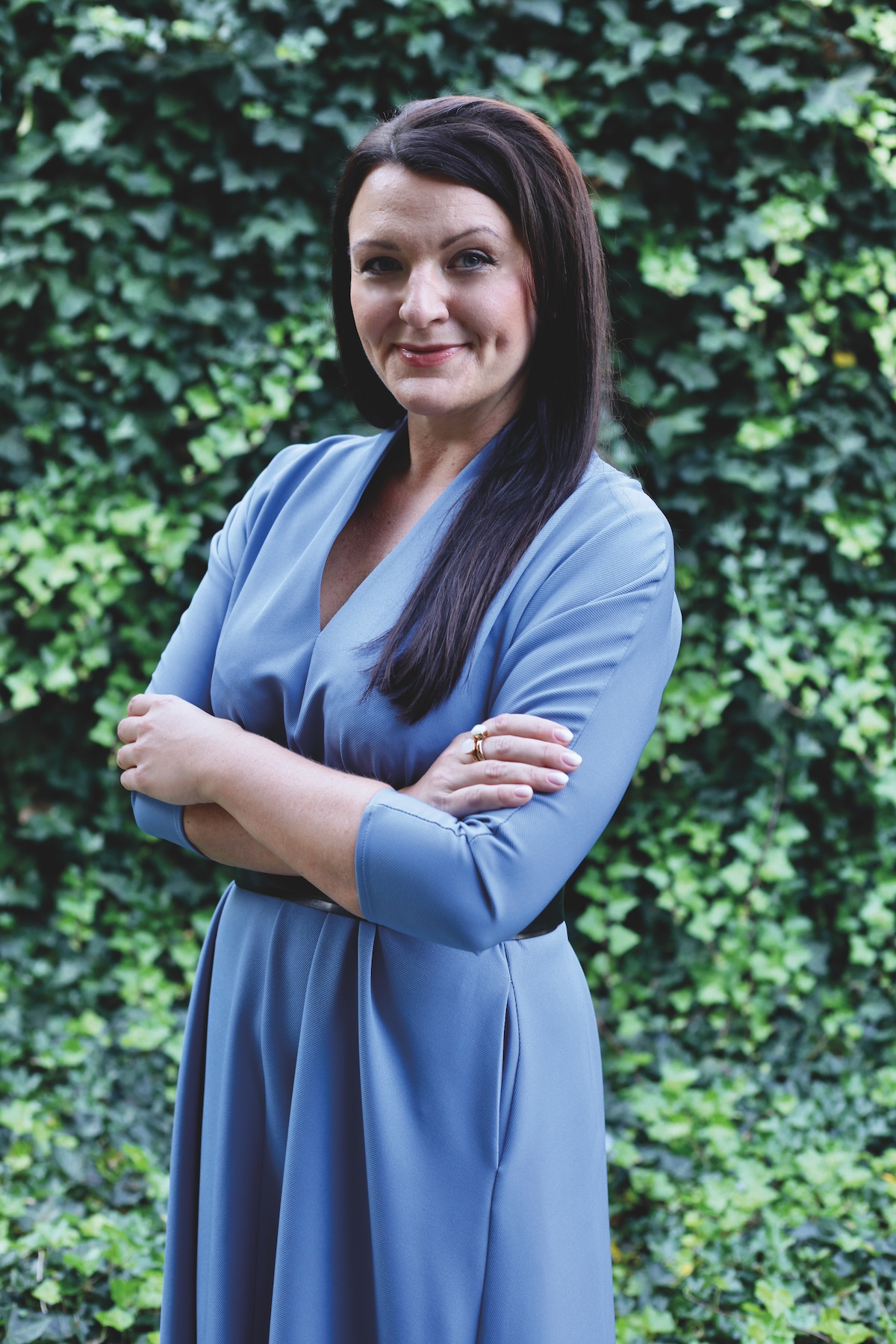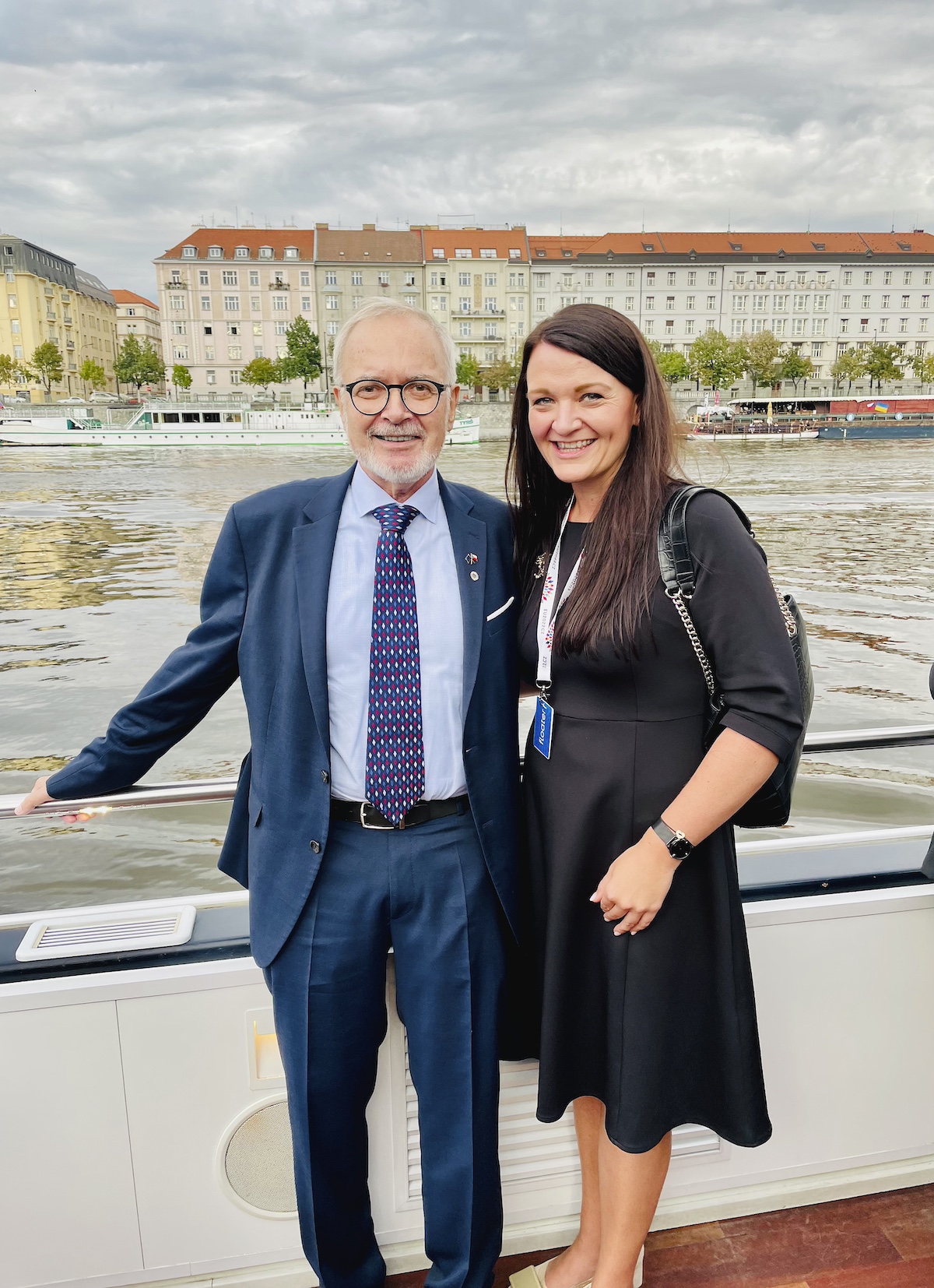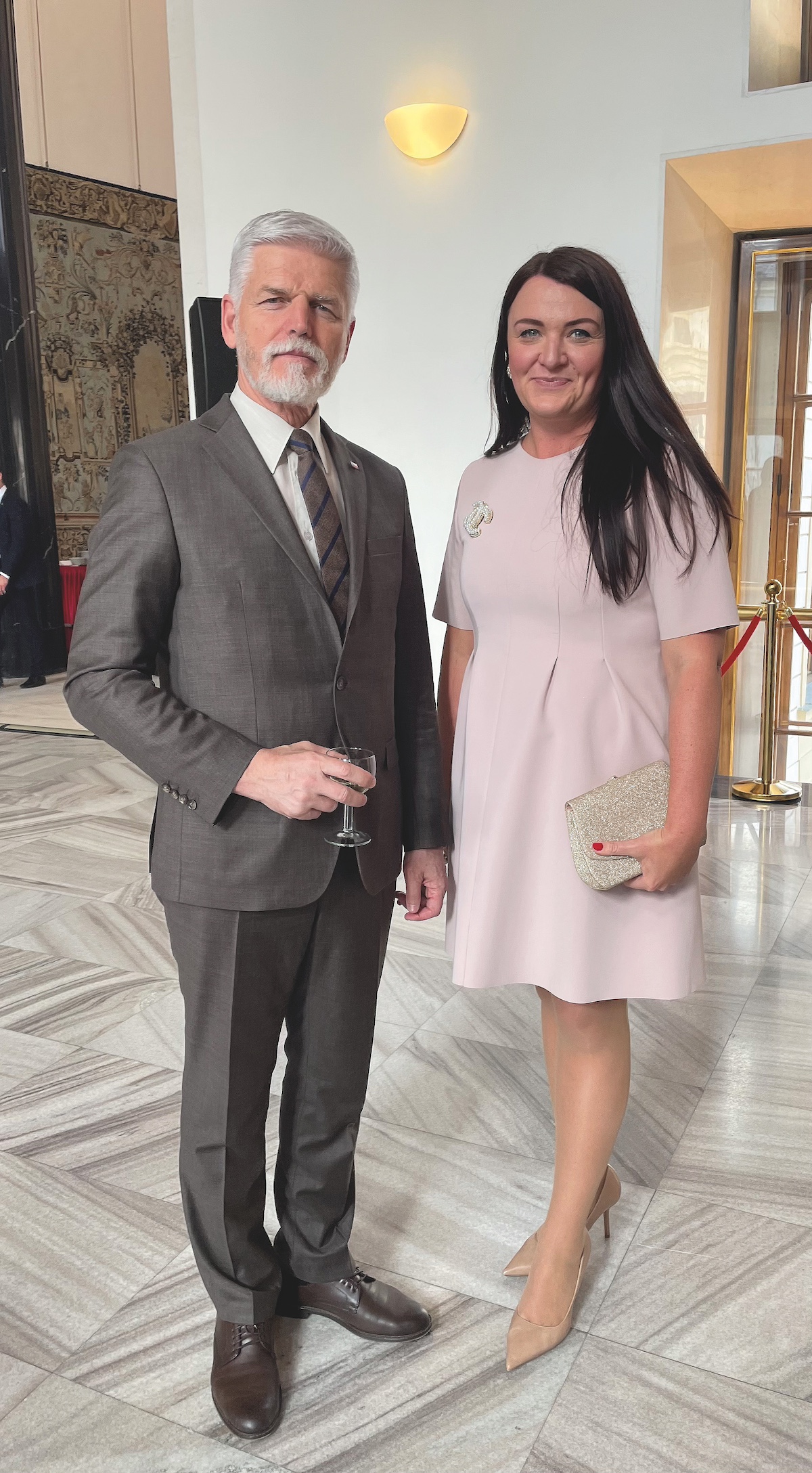I identify as a EUropean

Andrea Ferjenčíková, EIB Group Representative in the Czech Republic
Text: Martina Hošková and M.Zisso; Photo: Archive
Can you tell us about yourself?
Being Slovak, working for an EU institution – the Bank of the European Union – and being assigned to Prague feels like simultaneously being both at home and abroad. But, above all, I identify myself as a “EUropean”.
I consider myself a dynamic and result-driven professional who has spent the last 16 years in public affairs, economic diplomacy, business, and investments, both at the national and EU levels. I have worked as an advisor to EIB Vice Presidents, headed the Minister of Economy’s cabinet, and worked at the Finance Ministry during the Slovak EU Presidency.
I spent several years leading a Slovak NGO, focused on EU economic affairs and policies. In the early stages of my career, I held consulting positions and junior roles at the European Parliament, Ministry of Foreign Affairs, and the Permanent Representation of my country to the EU. I have studied in London, Warsaw, Bratislava, and Banská Bystrica in Slovakia, and hold degrees and certificates in law, international relations, diplomacy, and finance. In my activities, I strongly advocate for sustainability and the field of sustainable finance.
Besides my everyday tasks, you may find me as a member of businesswomen empowerment organisations, advocating for diversity and inclusion, serving as a member of an investment awards jury, or organising the donation of used computers to children / students facing financial hardships.
You have been in the Czech Republic for nearly five years. Can you share some of your highlights?
In my current role as the EIB Group’s Representative, I serve as the official representative and the head of the diplomatic mission of the EIB Group in Czechia.
When I arrived in the winter of 2019/2020, I encountered strong opposition from political leaders, businesses, and people regarding the ‘green deal’, as many considered it a threat. This was particularly challenging as our bank had just adopted a new energy and climate policy framework, recognising the need to increase support for green investments. I am now proud to see how quickly Czechia understood the potential and opportunities brought about through the green transition, and how this has led to enhanced collaboration on various fronts. The goal is to accelerate the decarbonisation, modernisation, and resilience of the Czech economy, and to improve everyday life for everybody in the country. Today, Czechs are much more open to discussing, and, more importantly, implementing various innovative financial instruments, as well as exploring modern models of investment governance in the country.

Andrea Ferjenčíková, EIB Group Representative in the Czech Republic with the former EIB President Werner Hoyer during the informal ECOFIN in Prague
What exactly is the EIB?
The EIB is the long-term lending institution of the EU owned by its member states, including Czechia. The Czech Minister of Finance is one of our 27 Governors. Our mission is to finance sound investments that can contribute to EU policy. EIB-backed projects strengthen competitiveness, foster innovation, promote sustainable development, and improve social and territorial cohesion while supporting a fair and rapid transition towards climate neutrality.
The EIB Group, which also includes the European Investment Fund (EIF), signed a total of €88 billion in new financing for over 900 projects in 2023. Thanks to these commitments, around €320 billion of investment is expected to be unlocked, supporting 400,000 businesses and 5.4 million jobs. In addition to financing, we provide advisory services, which include technical assistance to support project development, as well as financial advisory to design the most suitable financial instruments for any specific investment project.
The EIB closely collaborates with other EU institutions to foster European integration, promote the development of the EU, and support EU policies in over 160 countries around the world. As of this summer, the Czech EIB office will move to the joint seat of EU institutions at the Palác Dunaj. We can’t wait to be closer to our European Parliament and European Commission colleagues!
How important is the EIB to the Czech Republic’s economy?
I can confidently say that we are creating an impact. Supporting the Czech economy for over three decades, we have financed projects worth close to €30 billion. Our investments have backed almost all key sectors of the Czech economy, including transport, energy, urban development, and climate action innovation projects. From the outset, we have supported all sectors of the local economy, i.e. the state, regions, municipalities, but also private companies, banks, investment funds, smaller businesses, and start-ups.
Last year, the EIB Group injected a total of €1.88 billion into the country. Three quarters of these investments not only contribute to regional development, but also prioritise environmental sustainability.
Among the recent projects we have financed you can count the modernisation of railway tracks all over the country, the backing of green energy for households and businesses, a push for startups that deal with digitalisation, AI and fintech, and, last but not least, the installation of solar roofs at industrial buildings. In addition, our advisory services have agreed to help the Czech government in developing innovative investment models, which will attract private funds to affordable housing projects.
Generally, our aim is to bring additional value to all our financing operations, and I am positive that we succeed in doing so.
Can you compare the situation today to the one of the 2007– 2008 financial crisis?
Today, we are living in an era of multiple crises (“polycrises”), and must respond to emergency calls. Institutions like the EIB are part of the EU toolbox for crises. More than once, we were asked to find investment solutions to complex problems. Our pioneer instrument following the 2007/8 financial crisis was the Juncker plan, which allowed us to take on considerably more risk in a project than previously possible.
Recently, we have introduced several ambitious schemes for financing and advisory services under our Climate Bank roadmap, hoping to accelerate the urgently needed green transition. During COVID-19, the Group has responded with the pan-European guarantee fund to support the banking sector. This helped thousands of companies across the EU to survive. As a reaction to the unprecedented aggression against Ukraine, we have established a special facility to protect critical infrastructure in the country. To ensure energy resilience, reduce the EU’s dependence on fossil-fuel imports, and accelerate the energy transition, we are increasing our financing through the Repower EU initiative.
What are the main areas and priorities of the EIB?
Our new President, Nadia Calviño, who assumed office in January this year, has presented eight strategic priorities built on the strengths of the EIB Group. These include strengthening the climate bank, accelerating technological innovation and digitalisation, stepping up investment in security and defence, modernising cohesion policy, agriculture, and the bioeconomy, as well as investing in social infrastructure such as affordable housing. Finally, the bank will continue its activities outside the European Union, notably in the water and energy sector, and to empower vulnerable groups and communities.

Andrea Ferjenčíková, EIB Group Representative in the Czech Republic with President Petr Pavel
You hold the status of the head of a diplomatic mission. What has led you to this position?
I do hope it is a combination of my stamina, my passion for the European project, and my active local engagement. In my opinion, institutions like ours should have a strong connection to national and regional governments and organisations in order to best address the needs of the ‘market’. Conversely, they should also have the ability to advocate for and promote policies, and identify business opportunities.
What do you feel is the best adventure you have experienced during your career?
Arrivals. These are the moments that leave lasting impression, and I believe the combination of two different ‘arrivals’ has created a strong footprint in my memories. My first arrival was for an official audience with the Czech President, where I entered via the majestic courtyards of the Prague Castle, surrounded by presidential guards. Another arrival I vividly remember is to Karviná, an old mining city in Moravia. The dust turns white cars into black, abandoned mining towers lined the road, and, driving there, I realised just how urgent our ‘transition’ and decarbonisation programmes are. This is the sort of adventure that brings even more joy and dedication to my job.
What do you consider the weirdest thing you have ever dealt with?
It should not come as a surprise that we constantly receive requests for financing of various projects, from wind turbines to egg farms. However, most strikingly for me, people associate EU institutions almost exclusively with subsidies and grants. Well, as our name indicates, we are a bank, and our role is to lend and borrow money.
Do you have time for some hobbies?
I am a design and architecture enthusiast, with a love for exploring new cultures through travel. For years, I have been known as an avid baker, which I believe hones my precision and creativity. Lately, I have (re)discovered my passion for plants and drawings. I am curious what will come next!
Where do you see yourself five years from now?
Surrounded by a safe and inspiring working environment, leading yet another initiative, and working towards creating a real impact. My ultimate goal would be to leave a meaningful, sustainable footprint on our society, for a better Europe.

